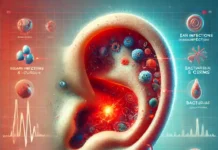Contraceptives are a safe and effective way to prevent pregnancy, but like any medication, they can come with side effects. Understanding these side effects is crucial to making an informed decision about the best contraceptive method for your needs. In this article, we’ll explore the common and rare side effects of contraceptives, as well as tips for managing them.
Common Side Effects of Contraceptives
1. Hormonal Birth Control (Pills, Implants, Injections)
Hormonal contraceptives are among the most popular methods, but they can cause several side effects, including:
- Weight gain: Some users report slight weight changes due to hormonal fluctuations.
- Nausea or vomiting: This is more common when starting a new hormonal contraceptive.
- Headaches: Hormonal changes can trigger headaches or migraines in some individuals.
- Mood swings: Hormonal contraceptives may affect mood, leading to irritability or depression.
- Decreased libido: Some users experience a drop in sexual desire.
For more information on hormonal birth control, check out this comprehensive guide from Planned Parenthood.
2. Intrauterine Devices (IUDs)
IUDs are a long-term contraceptive option, but they can also have side effects, such as:
- Spotting between periods: Irregular bleeding is common, especially in the first few months.
- Cramps: Some users experience mild to severe cramping after insertion.
- Risk of pelvic infections: While rare, improper insertion or use can increase the risk of infection.
If you’re considering an IUD, consult your healthcare provider to discuss the pros and cons.
3. Condoms
Condoms are a non-hormonal option, but they can still cause issues, including:
- Allergic reactions to latex: Some individuals may experience irritation or allergies.
- Condom breakage: Improper use or storage can lead to breakage, reducing effectiveness.
For tips on proper condom use, visit CDC’s Condom Fact Sheet.
Rare but Serious Side Effects
While most side effects are mild, some contraceptives can lead to more serious health risks:
- Blood clots: Hormonal contraceptives, particularly those containing estrogen, can increase the risk of blood clots, which may lead to heart attacks or strokes.
- Infection risk: Improper use of IUDs or failure to follow guidelines can result in pelvic inflammatory disease (PID).
If you experience severe symptoms like chest pain, shortness of breath, or severe abdominal pain, seek medical attention immediately.
How to Manage Contraceptive Side Effects
- Consult your healthcare provider: They can help you choose the best method based on your medical history.
- Track your symptoms: Keep a journal to monitor any side effects and discuss them with your doctor.
- Consider alternatives: If one method doesn’t work for you, there are plenty of other options to explore.
For more tips on managing side effects, read our guide on Choosing the Right Contraceptive Method.
Why Understanding Side Effects Matters
Being aware of the potential side effects of contraceptives empowers you to make informed decisions about your reproductive health. Whether you’re considering hormonal birth control, an IUD, or condoms, it’s essential to weigh the benefits and risks
Disclaimer
Sengideons.com does not host any files on its servers. All point to content hosted on third-party websites. Sengideons.com does not accept responsibility for content hosted on third-party websites and does not have any involvement in the same.













